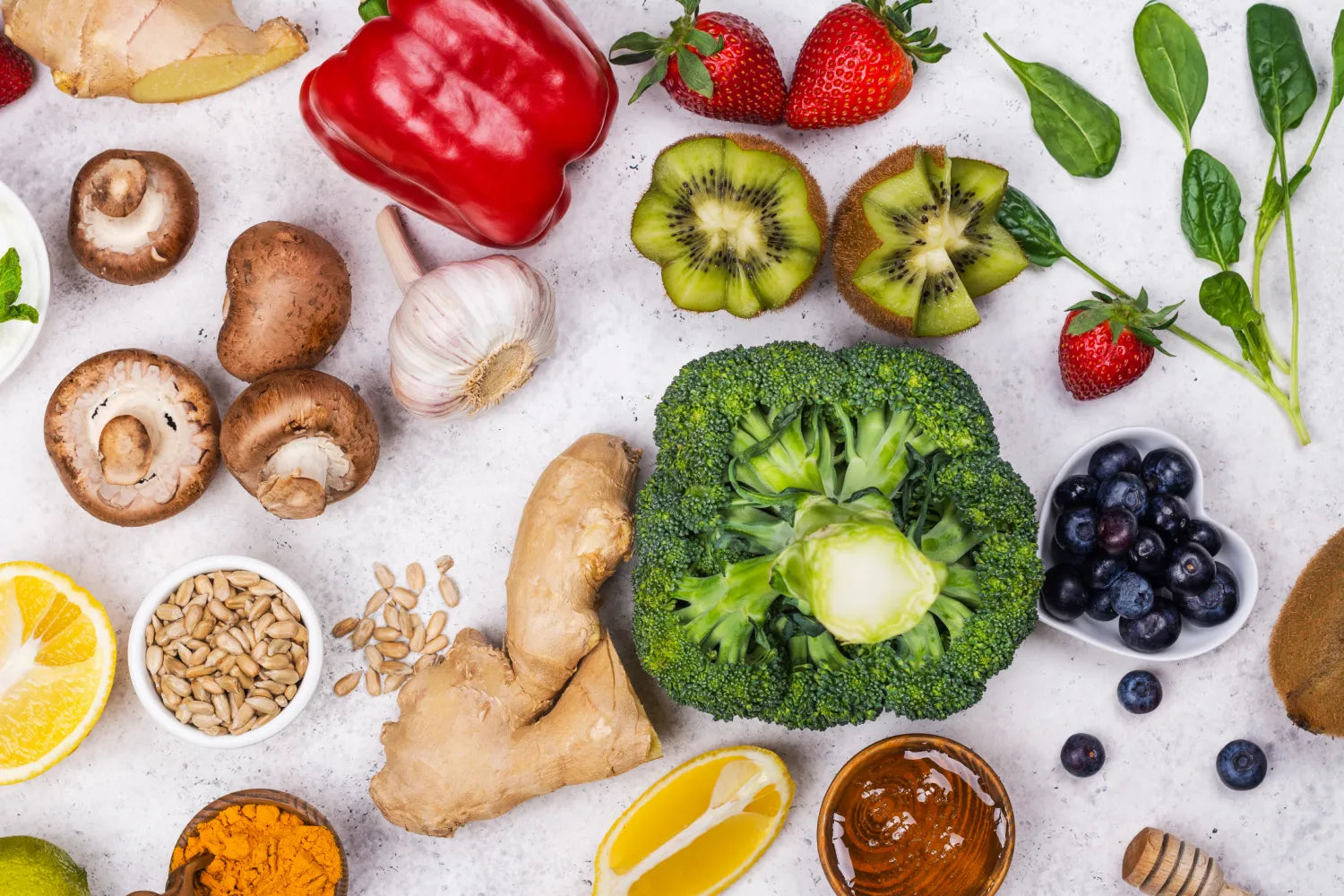Super Immune Boosters: The 8 Best Supplements for Immunity

Our bodies are really pretty incredible when you think about it. As well as breathing, digesting food, and keeping us moving, our bodies also manage to fight off infections on a daily basis.
The human immune system is super powerful and complicated. However, sometimes the occasional infection manages to slip past this sturdy defense. In these situations, taking certain supplements can help support the immune system so that our symptoms are more manageable and our bodies can fight off infections more quickly.
8 Supplements To Support Immunity
It can be hard to know which supplements to take. If you’ve ever walked the supplement aisle at your local superstore, you know what we’re talking about — there are walls upon walls of supplements, each promising to be the best.
This is enough to stress out even seasoned wellness pros. That’s why we’ve put together this cheat sheet of eight supplements that you can actually count on to support your health during cold and flu season.
1. Elderberry
Elderberries are every holistic health guru’s go-to for minor colds and illnesses. There’s some research to back this up, too. Some studies suggest that elderberry syrup or lozenges may reduce the duration of a cold or flu virus, while others suggest that elderberries can help clear up congestion.
These benefits could be due to the fact that a cup of elderberries contains a whopping 57 percent of our daily value of vitamin C. These berries are also high in fiber, which can support gut bacteria and indirectly support immunity.
2. Vitamin D
Vitamin D is one of the most important nutrients for overall functioning. However, you might be surprised to learn that about one billion people are deficient in vitamin D.
Vitamin D deficiency is linked to higher chances of developing respiratory infections like colds or the flu, and it’s also linked to more severe symptoms. The recommended daily allowance of vitamin D for adults is between 600 and 800 IUs, which you can get from a supplement, foods rich in vitamin D (such as milk, fatty fish, and eggs), and sunlight.
3. Chaga Mushroom
Chaga mushrooms aren’t just ordinary mushrooms — they’re super mushrooms! These fabulous fungi can support the body’s production of cytokines, proteins that can activate and shut down the immune system.
Chaga mushrooms are also high in powerful antioxidants. While you can technically eat chaga, it doesn’t taste good on its own. Instead, try a specially formulated mushroom blend like our Mushroom Coffee+, which contains chaga and lion’s mane mushrooms to support immunity.
4. Vitamin C
Vitamin C is another powerful antioxidant that is naturally found in many fruits and vegetables. Taking vitamin C can prevent you from getting a cold and help your body fight off colds more quickly, although it won’t cure you right away if you’re already sick. The maximum amount of vitamin C recommended for adults is 2,000 mg, so just make sure you don’t take more than that without talking to a healthcare provider.
5. Zinc
Zinc is one of the key nutrients not just for overall immune function, but also for wound healing. If you start taking zinc right when you feel a cold coming on, it could help you recover more quickly, although it won’t make the symptoms easier to handle.
Zinc can also help with upset stomachs, although more research is needed to confirm this benefit. Just be careful not to take too much zinc, as overdosing can cause extreme nausea.
6. Garlic
As if we didn’t already have enough reasons to love garlic (hello, garlic bread!), this super spice can also boost your immune system. Garlic has powerful antiviral, antibiotic, and anti-inflammatory benefits. One study even showed that taking garlic during cold and flu season reduced the number of illnesses participants contracted.
7. Vitamin A
Vitamin A supplements might not make it onto other lists of immune boosters, but we think it deserves an honorable mention. To start, supplementing with this vitamin can help prevent measles in children who are deficient.
Vitamin A can also help lower the risk of respiratory infections in children, as well as help decrease the time it takes to recover from symptoms like fever and coughing. However, taking vitamin A may actually increase the chances of developing respiratory infections in children who already get enough vitamin A from their diet, so it’s important to talk to a doctor or dietitian before supplementing with vitamin S.
8. Probiotics
You probably already know that probiotics can support gut health, but did you know that they can also support immunity? A whopping 70 percent of the immune system is located in the gut, where immune cells interact with your good gut bacteria.
Taking probiotics can support a healthy balance of good gut bacteria. While you’re at it, you might also want to take some prebiotics to feed these bacteria. You can find prebiotic fiber in plenty of veggies as well as in lion’s mane mushrooms.
The Bottom Line
Cold and flu season can catch us all by surprise. One minute, you’re feeling on top of the world. The next, you’re getting up late with a sniffly nose and a raging headache.
Luckily, these six immune-supporting supplements can help your body fight off these pesky infections. To learn more about health and the magic of functional mushrooms, visit the Everyday Dose blog today!
Sources:
Elderberry Information | Mount Sinai - New York
Vitamin D Deficiency: Causes, Symptoms & Treatment | Cleveland Clinic
Immunomodulatory Activity of the Water Extract from Medicinal Mushroom Inonotus obliquus | PMC
Zinc for colds: The final word? | Mayo Clinic
Garlic Information | Mount Sinai - New York
If you want to boost immunity, look to the gut | UCLA Health
Start your day
The Right Way









